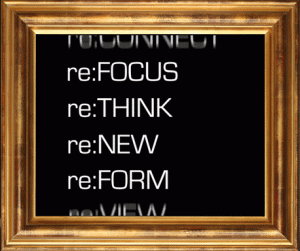 About a year ago, I wanted to attend a student affairs technology conference that did not necessarily focus on IT (application development, networking, security, enterprise software) but on social media, engaging students with technology and digital identity. I shared my hope to attend with a colleague in IT, and the response was, “that’s not what we do. That’s what the other departments do.” I would say, given my job description and what I would consider the role of traditional IT, my colleague is correct. Traditional IT is seen as a utility, and we implement/support systems. We enable student affairs departments, as well as the campus, to do their business functions.
About a year ago, I wanted to attend a student affairs technology conference that did not necessarily focus on IT (application development, networking, security, enterprise software) but on social media, engaging students with technology and digital identity. I shared my hope to attend with a colleague in IT, and the response was, “that’s not what we do. That’s what the other departments do.” I would say, given my job description and what I would consider the role of traditional IT, my colleague is correct. Traditional IT is seen as a utility, and we implement/support systems. We enable student affairs departments, as well as the campus, to do their business functions.
I view my position in student affairs and IT is a bit different. I see myself as a student affairs professional serving students through my work in IT. I see myself as a university community member, not just an IT employee. Because I see myself as a student affairs professional, I also view myself as an educator, a student mentor, advisor, and advocate for their success, and I’ve demonstrated these through volunteer positions outside my formal role in IT (First Year Experience teaching assistant, organizational advisor, applications reader). Given this perspective, I saw the conference as an opportunity to learn about technology-related topics and understand student affairs practitioners’ perspectives. It was an opportunity for me to understand the purpose of why we, in student affairs IT, exist.
I also wrote this blog post about my view of the role student affairs IT should play. As I mentioned earlier, IT is traditionally seen as a utility provider. I want to think that given the critical role technology plays in student affairs and the lives of our students and other customers, we need to be viewed both as a utility, providing the required infrastructure (network, servers, hardware, software) as well as partners in defining how we can use technology to transform how we do business in student affairs and on campus.
We have formal job titles with given job descriptions, and we get paid to perform these responsibilities. I think it’s important to re-frame our purpose beyond what is listed as job responsibilities on our job descriptions. Our organizations, as they exist, probably need some examination to determine if we are current with the times. We must go beyond the boundaries of what we see when we come to work every day. We are a part of a more extensive system.
Ultimately, we need to ask more critical questions beyond what we do. We must ask, “what is our ultimate purpose?” and “why do our roles exist”?
image credit: http://reframemedia.com/about
August 22nd, 2013 on 9:27 am
The idea of “ultimate purpose” or the work bigger then ourselves is absolutely critical. It sounds like the meaning and purpose you find in your work is the student focused side and supporting their growth, which I love. I’d be interested to know if your colleagues have the same meaning and purpose but just see a different way of living it out. What a wonderful opportunity to be the change agent in your department and become the torch bearer of seeing the greater impact your work can have on student development. Totally needed in Higher Ed.
September 13th, 2013 on 7:28 am
The re framing of your own purpose have given you the chance to be students ones again hope you enjoyed the moments a lot.
handicraft india